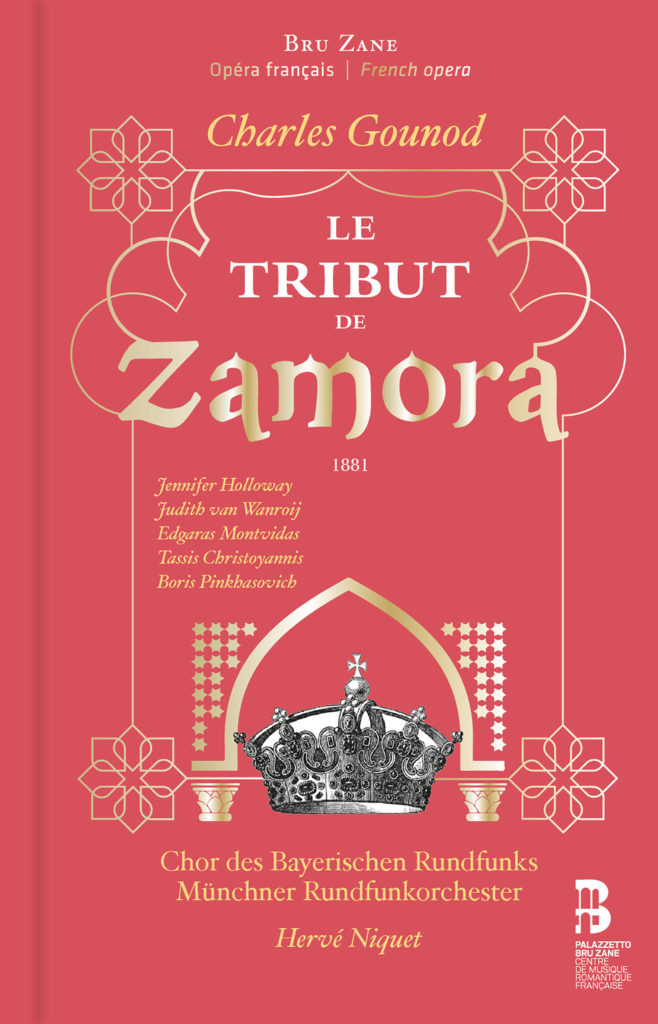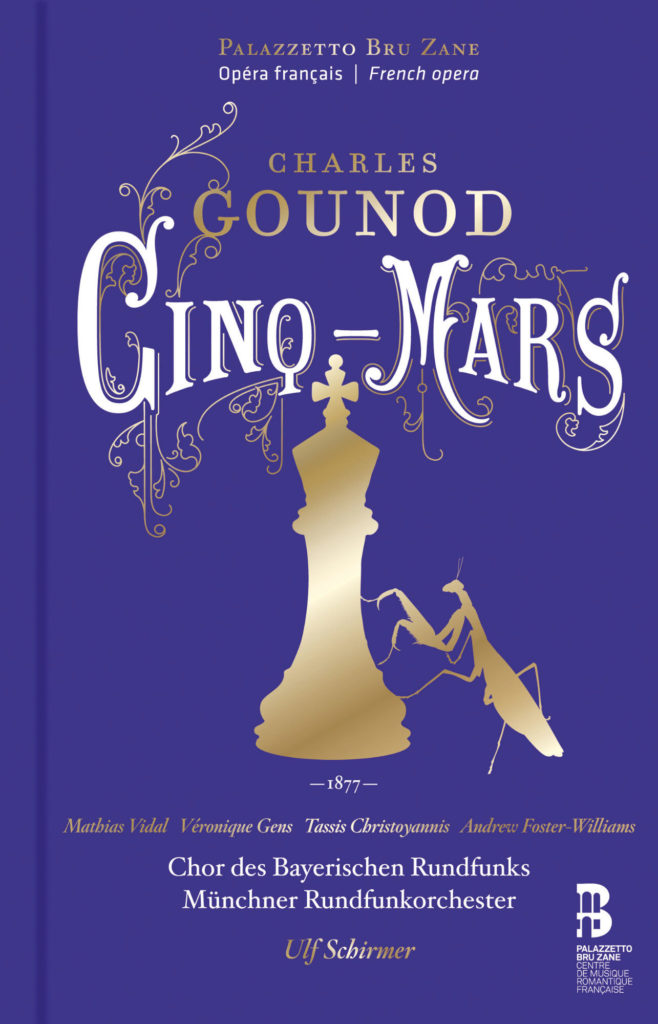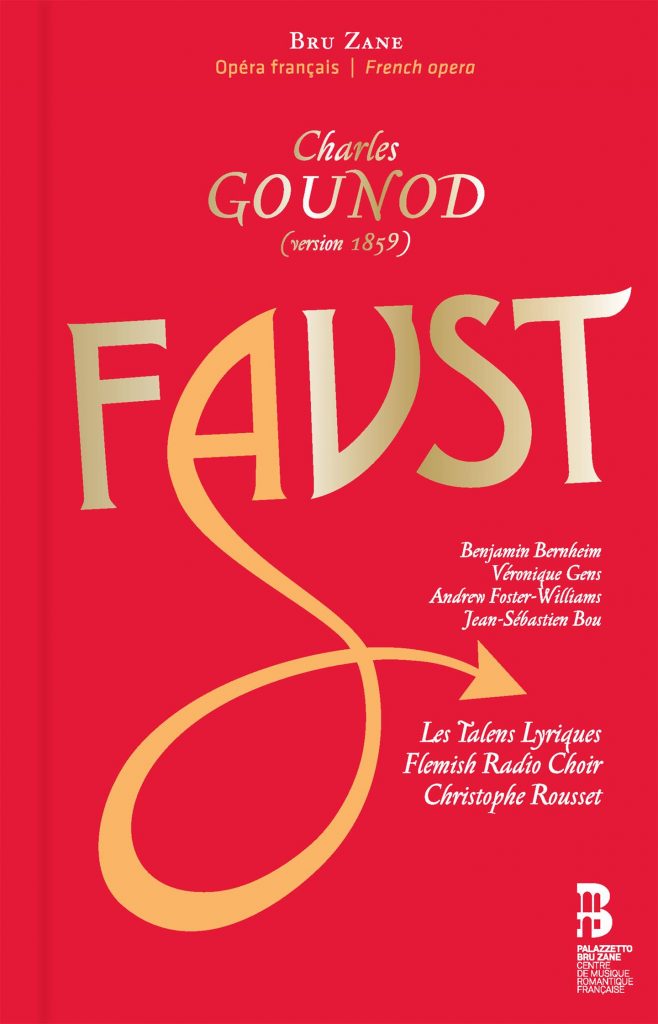CD 1
Act I
1- Prélude
2- Chœur : Au vieux pays de Cantabrie (Chœur)
3- Aubade : Ô blanc bouquet de l’épousée (Xaïma, Manoël)
4- Scène : Qu’entends-je ? (Xaïma, Manoël, Ben-Saïd, Chœur)
5- Vision et Arioso : La torche du vainqueur brûlait la ville prise (Xaïma, Ben-Saïd)
6- Scène : Le seigneur sarrasin parle à ma fiancée (Xaïma, Manoël, Ben-Saïd)
7- Duo : Pourquoi ce langage odieux ? (Xaïma, Manoël)
8- Arioso : Ce Sarrasin disait que mon seigneur et maître (Xaïma, Manoël)
9- Chœur : Entendez-vous la cloche ailée (Chœur)
10- Scène : Que la cloche se taise et qu’on ferme l’église (L’Alcade, Ben-Saïd, Le Roi, Chœur)
11- Arioso et Scène : Vous osez proférer des menaces (Ben-Saïd, L’Alcade, Manoël, Le Roi, Chœur)
12- Finale : Voici le premier nom (Iglésia, L’Alcade, Le Roi, Chœur)
13- Finale (suite) : Xaïma Ferreras ! (Xaïma, Manoël, L’Alcade, Ben-Saïd, Le Roi, Chœur)
Act II
14- Chœur : Fêtons, fêtons l’anniversaire (Chœur)
15- Kasidah : La flèche siffle (Hadjar, Un Soldat arabe, Chœur)
16- Scène : Assez ! je ne veux pas qu’on chante (Hermosa, Hadjar, Chœur)
17- Air : Que me dis-tu ? Qu’il faut encore te suivre ? (Hermosa)
18- Scène, Marche et Chœur : Ah ! voici le convoi d’Espagne (Hadjar, Chœur)
19- Scène : Je connais cet homme, il me semble (Manoël, Hadjar)
20- Récitatif : Notre très clément souverain (Le Cadi)
21- Marche des captives
22- Scène et Arioso : Seule en ce lieu (Xaïma, Hermosa)
23- Finale : Oh ! la pauvre femme (Xaïma, Manoël, Le Cadi, Ben-Saïd, Hadjar, Un Soldat arabe, Chœur)
24- Morceau d’ensemble : L’ange qui chaque nuit (Xaïma, Hermosa, Iglésia, Manoël, Le Cadi, Ben-Saïd, Hadjar, Un Soldat arabe, Chœur)
25- Finale (suite) : À cents dinars d’or (Xaïma, Manoël, Le Cadi, Ben-Saïd, Hadjar, Chœur)
CD 2
Act III
1- Scène : Écoutez ! écoutez les clairons d’or ! (Ben-Saïd, Chœur)
2- Introduction et Barcarolle : Ma belle, effleurons de nos rames (Une Jeune Esclave)
3- Danse grecque
4- Danse espagnole
5- Romance : Je m’efforce en vain de te plaire ! (Ben-Saïd)
6- Trio : Mon frère ! Il faut qu’Hadjar (Xaïma, Manoël, Ben-Saïd, Hadjar)
7- Scène : Sa dernière heure décidera mon sort ! (Xaïma, Manoël, Ben-Saïd)
8- Morceau d’ensemble : Un pardon de ta bouche altière ! (Xaïma, Manoël, Ben-Saïd, Hadjar, Chœur)
9- Scène : À la pitié pour moi, qui souffre tant (Xaïma, Ben-Saïd)
10- Duo : De sa mort qui donc parle ici ? (Xaïma, Hermosa)
11- Duo (suite) : Que s’est-il donc passé ? (Xaïma, Hermosa)
Act IV
12- Introduction et Cavatine : J’ai pu, la nuit venue (Manoël)
13- Scène et Duo : Manoël ! Sans moi tu veux mourir ? (Xaïma, Manoël)
14- Scène, Romance et Trio : Malheureux ! (Xaïma, Hermosa, Manoël)
15- Trio (suite) : Mais sans mourir (Xaïma, Hermosa, Manoël)
16- Scène et Cavatine : Lui ! Manoël ! Encore ! (Xaïma, Ben-Saïd)
17- Duo : Tu mens, traître ! (Xaïma, Ben-Saïd)
18- Scène : Tu ne passeras pas ! (Xaïma, Hermosa, Ben-Saïd)
19- Cantabile et Scène : Te la rendre ! (Hermosa, Ben-Saïd, Hadjar)
20- Scène finale : Non ! N’appelle personne (Xaïma, Hermosa, Manoël, Ben-Saïd, Hadjar, Chœur)
|



 Torna indietro
Torna indietro  webradio
webradio replay
replay








